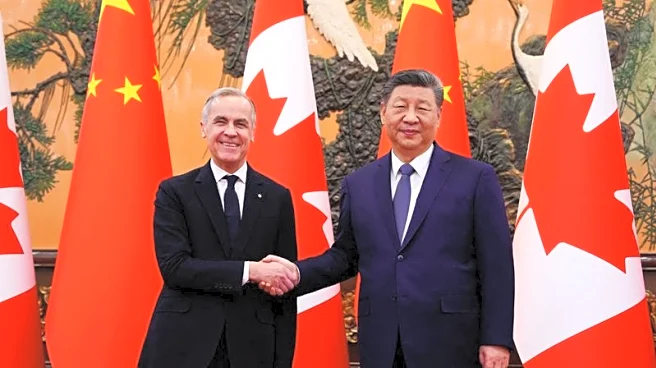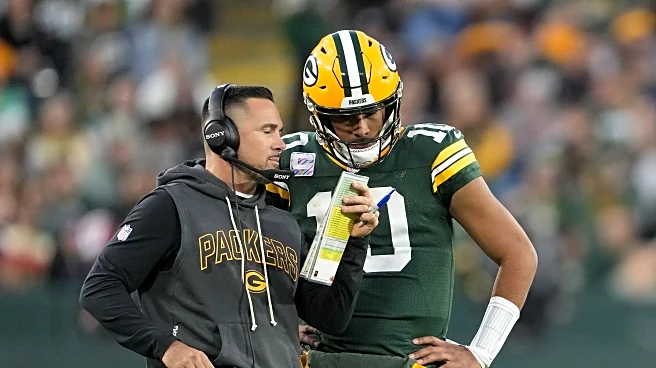What's Happening?
WWE has announced a partnership with ESPN to stream its premium live events on ESPN's new direct-to-consumer streaming service. The inaugural event, Wrestlepalooza, will take place on September 20 in Indianapolis, marking the beginning of this collaboration. John Cena will headline the event, which will also feature other prominent WWE stars such as Cody Rhodes, Seth Rollins, Becky Lynch, CM Punk, and Drew McIntyre. This event will be Cena's last appearance in independent wrestling promotions. ESPN's streaming service is set to launch on August 21, and starting next year, major WWE events like WrestleMania and SummerSlam will also be available on this platform, transitioning from NBCUniversal's Peacock.
Why It's Important?
The partnership between WWE and ESPN signifies a major shift in the distribution of WWE's premium live events, moving from NBCUniversal's Peacock to ESPN's new streaming service. This move is expected to enhance ESPN's sports media offerings and attract WWE's substantial fan base to its platform. For WWE, this collaboration provides an opportunity to reach a broader audience through ESPN's established sports media presence. The transition could impact the streaming landscape, as ESPN expands its content offerings to include popular wrestling events, potentially influencing other sports and entertainment partnerships.
What's Next?
As ESPN becomes the exclusive domestic home for WWE's premium live events, fans can anticipate a seamless transition of major events to the new platform. The upcoming Wrestlepalooza event will serve as a test for the partnership's success, with ESPN likely to evaluate viewer engagement and subscription growth. WWE and ESPN may explore further collaborations to enhance content delivery and fan experience. Stakeholders, including WWE fans and ESPN subscribers, will be watching closely to see how this partnership evolves and impacts the availability and accessibility of WWE events.
Beyond the Headlines
This partnership could have broader implications for the sports media industry, as it highlights the growing trend of direct-to-consumer streaming services acquiring exclusive rights to popular events. The move may prompt other sports organizations to consider similar partnerships, potentially reshaping how live sports content is distributed and consumed. Additionally, the collaboration underscores the importance of strategic alliances in expanding audience reach and adapting to changing media consumption habits.











